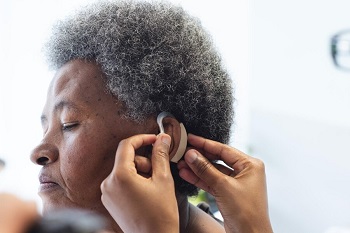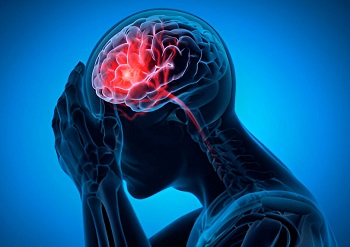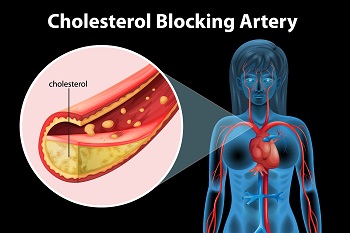15 Modifiable Risk Factors of Dementia Africans Need to Know
By: Elizabeth Obigwe, B.Sc. Anatomy. Freelance Health Writer. Medically reviewed by A. Odutola MBBS, PhD, FRCSEd.

A happy and smiley elderly black man wearing a cap and looking into the horizon.
Dementia is a term for several brain conditions affecting memory, communication, and thinking ability among other functions. Although it mostly affects elderly people 65 and older, it is not a natural part of ageing.
There are certain lifestyle, environmental and biological factors that can increase your chances of developing dementia. While some of these factors are beyond your control, some can be changed or improved to reduce your risk of coming down with the condition.
Age and genetics or family history are the common uncontrollable risk factors of dementia. However, there are several other factors within your control accounting for about 45% of dementia cases. These controllable factors will be discuss in this slideshow, so that you can make informed choices about how to prevent dementia.

Photo of hands placing a hearing aid in the ear of an elderly African woman. Photo by Wavebreak Media on Freepik
Developing hearing loss during midlife (40 - 65 years) makes you more likely to suffer dementia. In fact, hearing loss is estimated to account for 8% of cases.
The relationship between hearing loss and dementia is not very clear. However, there are three potential assumptions. The first is that reduced social engagement caused by loss of hearing may leave a person less intellectually stimulated, resulting in dementia.
Secondly, when a person loses their hearing, it forces the brain to work harder to hear and connect information and this may negatively impact the thinking and memory systems. The third assumption is that hearing loss may cause the brain to shrink more quickly.
In general, using hearing aids has been shown to reduce the risk of dementia to the same level as a person with unimpaired hearing. Talk to your doctor if you notice any changes in your hearing.

Photo of an African boy writing with a pen on a book on a classroom desk Image credit: Photo by Santi Vedrí on Unsplash
Research shows that not only does getting a good education as an adult decrease your chances of developing dementia, but the quality of education you receive during childhood also influences your chances. Hence, the fight against dementia should start early in life.
According to the Lancet, quality education can decrease dementia cases by 5%. Although there is no clear explanation of how education helps to reduce dementia risk, different theories exist.
Scientists believe that quality formal education increases “cognitive reserve,” which is the brain’s ability to maintain cognitive skills despite ageing or damage. Another school of thought links the impact of quality education to socioeconomic status and quality of life. It suggests that education can impact a person's job, quality of food and exercise, where they live, etc. This is in line with the findings from a study which showed the impact of education, wealth and job status on dementia.
Beyond formal education, learning new skills and working in cognitively complex jobs can also help to protect your brain health.

Photo of a senior African man with a cigar in his mouth. Image Credit: Photo by Mehmet Turgut Kirkgoz on Pexels
Smoking affects several organs in your body including the brain. It affects the heart and blood vessels. These damages to blood vessels are linked to the two most common forms of dementia: Alzheimer's disease and vascular dementia.
Compared to light smokers, the risk of Alzheimer’s disease is significantly higher among medium to heavy smokers. Also, if you quit smoking, it can reduce your risk of dementia to the level of someone who has never smoked.
You should also be concerned about second-hand or passive smoking. This happens when you stay around smokers and inhale the smoke they exhale. Second-hand smoking also increases your risk of dementia.
4. Excessive Alcohol Use
.jpg)
Photo of a drowsy African man leaning on a table with two bottles and a glass containing alcohol in front of him.
Drinking alcohol in moderation (within the recommended limit) has not been linked to dementia. But excessive alcohol intake on the other hand can increase your risk of suffering dementia.
Excessive alcohol affects your brain in the following ways:
The NHS recommended alcohol limit for both men and women is a maximum of 14 units a week. If you drink regularly, you are advised to spread your drinking over 3 or more days. If you are unsure how much one unit of alcohol is, you can use the formula below to calculate.
strength (alcohol by volume - ABV)* x volume of drink (ml) ÷ 1,000 = units
*ABV is the percentage of alcohol content in a drink, usually written on the bottle or can.
For a faster result, you can use this alcohol unit calculator
5. Obesity
.jpg)
Photo of an obese man having his waistline measured while holding a hamburger in one hand.
Studies have shown that midlife (35 - 65 years) obesity can increase a person's risk of developing dementia. This finding, however, does not apply to people who are fat or even overweight. A person is considered obese if they have a body mass index (BMI) of 30 or above. BMI is calculated as your weight in kilograms divided by your height squared (in metres).
According to the findings, obesity affects the brain by causing it to age by up to 10 years. The brain naturally reduces in size as one gets older but the shrinkage is worse in obese persons.
Also, obesity is linked to other risk factors of dementia like high blood pressure, diabetes, social isolation and depression. All of these combine to increase the risk of dementia in an obese person.

Photo of a healthcare provider checking the blood pressure of an elderly African man.
Hypertension is also known as high blood pressure and when left untreated can increase your risk of developing dementia. Hypertension which can cause dementia is one that occurs around ages 40-64 and it is typically associated with vascular dementia.
Hypertension can be treated using anti-hypertensive drugs; there are different types. Aside from medication, you can also manage the condition through the following lifestyle changes:

Photo of an elderly African woman holding a dumbbell at shoulder level with both hands.
Regular physical activities have several health benefits which in turn help to prevent or delay the onset of dementia. For instance, exercising can help you maintain a healthy weight, reducing your risk of obesity and type 2 diabetes both of which contribute to an increased risk of dementia.
Additionally, physical activities improve blood circulation around the body, including the brain. This helps to deliver sufficient oxygen and nutrients which the brain cells need to function properly.
Physical activities or exercising does not only involve gym activities. From sports like cycling to hobbies like gardening all form part of physical activities. Participation in different kinds of activities is recommended for maximum benefit. You can combine strengthening activities with moderate-intensity or vigorous-intensity activities. Persons who are 65 and older can also add activities for balance and coordination.
Moderate-intensity activities will cause you to breathe faster, but you should still be able to talk. Examples are brisk walking, dancing, gardening and cycling. It is recommended to do this kind of activity for 150 minutes a week.
Vigorous-intensity activities will cause you to breathe fast and be unable to talk. Examples are running, cycling fast, swimming fast and competitive sports like tennis. The recommendation for this activity is at least 75 minutes a week.
Strengthening activities help in building muscle strength and endurance. They include weight lifting, resistance band exercises, squats and yoga poses.
Activities for Balance and Coordination help to improve stability and prevent falls, especially in older adults. Examples include tai chi, going up and down the stairs, standing on one leg and heel-to-toe walking.

A 3D cartoon illustration of a man with a stroke.
Traumatic brain injury (TBI) occurs when you have a head injury that disrupts the normal functioning of the brain. It is possible to have a head injury that does not lead to TBI. Having repeated TBI and the more severe the TBI, the higher the risk of developing dementia.
One group of people that are prone to having head injuries are athletes in boxing, hockey, football and other contact sports. A recent study showed a link between football heading and significant declines in brain microstructure and function.
Falling also causes traumatic brain injury. In fact, it is the leading cause of TBI, hence, it can be dangerous when older adults fall.
To reduce their risk of head injuries, athletes can wear protective head equipment and limit heading balls or high-impact collisions. Sports governing bodies should also adopt rules that protect athletes from head injuries during sporting activities. For older adults, carrying out activities that improve balance and coordination can help.

Photo of an African man sitting by himself on a sofa with a phone in his hand and staring out of a glass window
The exact link between social isolation and dementia is not clear and some scientists argue that social isolation might be an early sign of dementia rather than a risk factor. Nonetheless, staying socially connected has been proven to have health benefits as opposed to social isolation.
Studies have shown that people who live alone and have less social contact are more likely to suffer depression and develop unhealthy habits like smoking and drinking which may contribute to their risk of dementia. So, it is important to stay connected with family and friends, engage in social activities that interest you, and join like-minded groups and communities.

Photo of an African man sitting in his bed with his head in both hands
There is a connection between dementia and depression but the nature of this connection is still unclear. Like with social isolation, scientists still debate whether depression is a risk factor, an early symptom of dementia or both. Also, it is important to note that not everyone who has depression will develop dementia and not everyone with dementia will get depressed.
Several factors can cause a person to be depressed but some of the things to do that can help prevent depression include:

Photo of a blue ribbon, blood sugar meter, medication, junk food and sugar cubes on a blue background. Image Credit: Photo by Nataliya Vaitkevich on Pexels
Diabetes occurs when the body does not produce enough insulin or can not use insulin properly, leading to high blood sugar levels. Insulin is the hormone in the body that controls blood sugar levels.
Both type-1 and type-2 diabetes mellitus have been proven to be risk factors for dementia. Alzheimer’s disease or vascular dementia are the types of dementia that can develop due to diabetes. However, not everyone who has diabetes will have dementia. Dementia risk also increases with the length of time a person has diabetes and the severity of the condition.
The possible ways in which diabetes can increase the risk of dementia include:
Damaging blood vessels including those of the brain, leading to vascular dementia
In type-2 diabetes, brain cells may not respond to insulin, a condition called insulin resistance. This can affect how the brain uses energy. It can also cause the build-up of two proteins called amyloid and tau, resulting in damaged brain cells.
Diabetes can also cause inflammation in the brain. Inflammation occurs when the immune system becomes overactive and releases chemicals that damage brain cells. Scientists have found that anti-inflammatory diets can lower your risk of dementia.

An outdoor photo showing a road with light traffic of cars and tricycles and heavily polluted air
Although scientists have established a link between air pollution and dementia, how the two are linked is still unclear. Some researchers believe that since air pollution affects the heart and lungs, this may also impact the blood supply to the brain, resulting in vascular dementia.
Generally, other lifestyle factors we have discussed seem to have a greater influence on dementia risk than air pollution. Nonetheless, it is important to avoid long-term exposure or exposure to high levels of air pollution as it can be hazardous.

A 3D cartoon illustration showing the blood circulation of a woman and a magnified section showing an artery blocked by cholesterol.
Cholesterol is a type of fat found in the bloodstream and we have both good and bad cholesterol. The good cholesterols are called High-Density Lipoproteins (HDL) while the bad ones are Low-Density Lipoproteins (LDL).
If you have a higher than normal LDL in your blood, you are said to have high cholesterol and this is a risk factor for dementia. Also having lower than normal HDL can increase your risk of dementia.
You can manage your blood cholesterol level using drugs and other lifestyle modifications such as;

Photo showing the eye of a black man with total vision loss. Image Credit: Photo by Tima Miroshnichenko on Pexels.
Loss of vision is responsible for 2% of potentially modifiable dementia risk factors. Studies have linked cataracts and diabetic retinopathy in particular to an increased risk of dementia but the same has not been proven for glaucoma and age-related macular degeneration. Similarly, untreated long-sightedness or short-sightedness may increase your risk of having dementia. In general, the more severe vision loss a person has, the higher their risk of dementia.
The connection between vision loss and dementia is still unclear. However, there are theories about the possible relationship.
One theory suggests that underlying diseases like diabetes which cause visual impairment may be responsible for increasing the risk of dementia.
A second theory is that visual impairment reduces brain stimulation, thereby decreasing cognitive reserve which can make a person more likely to develop dementia
Another theory is that changes in the brain as a result of Alzheimer's disease may lead to visual impairment. In this case, visual impairment becomes an early symptom rather than a risk factor of dementia.

Photo of a middle-aged black man sleeping with his mouth slightly open.
Sleep apnea is a disorder that causes breathing to stop or become shallow during sleep. One noticeable symptom is when a person snores or gasps for breath while sleeping. Most cases of sleep apnea go undiagnosed so it is better to see your doctor if you suspect you may have sleep apnea. Other symptoms to look out for include:
When you sleep, your body starts to repair and restore itself. If you have sleep apnea and take in inadequate oxygen during this time, it can disrupt memory formation, blood pressure regulation, and weight control.
Hence, untreated sleep apnea is known to increase the risk of dementia, stroke or heart attack. It is particularly associated with Alzheimer's disease and Parkinson's disease, but not vascular dementia.
Dementia takes many years to manifest and the risk factors start as early as childhood. Having less education in early life is a childhood risk factor contributing to 5% of cases. The majority of the risk factors set in during midlife, while isolation, air pollution and vision loss are late-life risk factors.
It is important for Africans to pay attention to these potential risk factors of dementia and make necessary lifestyle adjustments. Studies have shown that dementia rate is higher among blacks compared to other races, hence, the need for individual, collective and state efforts in tackling these modifiable risk factors of dementia.
Resources
Livington G, Huntley J, Liu KY, et al. Dementia prevention, intervention and care: 2024 report of the Lancet standing Commission. The Lancet [online]. 2024; 404(10452):572-628. Available from here.
Mayeda ER, Glymour MM, Quesenberry CP, Whitmer RA. Inequalities in dementia incidence between six racial and ethnic groups over 14 years. Alzheimers Dement. 2016 Mar;12(3):216-24. doi: 10.1016/j.jalz.2015.12.007. Available from here.
Related:
Published: February 6, 2025
© 2025. Datelinehealth Africa Inc. All rights reserved.
Permission is given to copy, use and share content for non-commercial purposes without alteration or modification and subject to source attribution.
DATELINEHEALTH AFRICA INC., is a digital publisher for informational and educational purposes and does not offer personal medical care and advice. If you have a medical problem needing routine or emergency attention, call your doctor or local emergency services immediately, or visit the nearest emergency room or the nearest hospital. You should consult your professional healthcare provider before starting any nutrition, diet, exercise, fitness, medical or wellness program mentioned or referenced in the DatelinehealthAfrica website. Click here for more disclaimer notice.